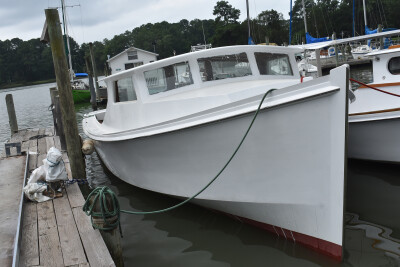The Trump administration has gone on the record in defense of Barack Obama's 2016 establishment of the 5,000-square mile Northeast Canyons and Seamounts Marine National Monument, according to a defense filing in federal court this week.
 Jeffrey H. Wood, acting assistant attorney general for the environment and natural resources division, entered a motion on Monday, April 16, to dismiss a lawsuit challenging Obama's authority to make the monument designation filed by various fishing organizations. The lawsuit has been on hold since last spring after President Donald Trump ordered an official review of several National Marine Monuments established by Obama. That hold was lifted in mid-March and the plaintiffs are ready to pick up where they left off.
Jeffrey H. Wood, acting assistant attorney general for the environment and natural resources division, entered a motion on Monday, April 16, to dismiss a lawsuit challenging Obama's authority to make the monument designation filed by various fishing organizations. The lawsuit has been on hold since last spring after President Donald Trump ordered an official review of several National Marine Monuments established by Obama. That hold was lifted in mid-March and the plaintiffs are ready to pick up where they left off.
The lawsuit argues that Obama never had the authority to establish the monument under the the Antiquities Act, given that the ocean is not “land owned or controlled by the federal government,” as the act stipulates.
In the lengthy defense of the marine monument, Wood argues that the president has clear authority under the federal Antiquities Act to establish national monuments.
“This Court cannot review how the President exercised the discretion that Congress granted him to designate and define national monuments in the Antiquities Act,” wrote Wood.
A lawyer for the fishing groups said he wasn’t surprised by the government’s motion.
"It’s not surprising that the government has moved to dismiss the lawsuit. That’s standard operating procedure for the Department of Justice. But the motion is nonetheless interesting in that it tees up the merits question in our case, rather than side issues like standing, venue, etc," said Jonathan Wood, an attorney with the Pacific Legal Foundation. "In other words, when the court resolves the government’s motion to dismiss, it will necessarily decide the precise question we’re asking it to decide: is the ocean within the Antiquities Act’s authorization for monuments on 'land owned or controlled by the Federal Government?'"
"If the court denies the government’s motion, it will all but guarantee that the fishermen will prevail. And, of course, if the court dismisses the case, we’ll have an immediate right to appeal to the D.C. Circuit, giving that court a chance to decide the legal question," he added.







